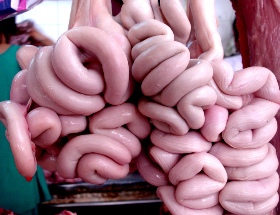Australia: Thai pork ban related to H1N1 outbreak

The Australian Quarantine Service has told Australian Pork Limited (APL) that Thailand had imposed a ‘temporary ban’ on Australian pig offal imports as a result of Australia’s ‘suspect human cases’ of the novel influenza A virus (H1N1), previously known as ‘swine flu’.
This happened despite the absence of any scientific evidence that swine flu can be contracted from any pig products.
Following actions
The Thai authorities stated they have followed the actions of 30 other countries that have banned pork, beef and sometimes poultry from countries where human H1N1 cases have been detected.
The only suspected case of the novel type of influenza in Australia proved to be in a person who had stayed in Mexico and tested positive on her return, but who had already recovered and was not a threat to others.
Domestic political reasons
Australian pig producers consider the ban has been imposed more for domestic political reasons and not for any health reason, as Thai pig farmers have conducted a long-running campaign against pig offal imports from Australia and other nations.
The World Health Organisation (WHO) stated that it is safe to eat pork and pork products: “Influenza A (H1N1) has not been shown to be transmissible to people through eating properly handled and prepared pork (pig meat) or other products derived from pigs. The influenza A (H1N1) virus is killed by cooking temperatures of 160°F/70°C, corresponding to the general guidance for the preparation of pork and other meat.”
Related websites:
Australian Pork Limited (APL)
Australian Quarantine and Inspection Service











